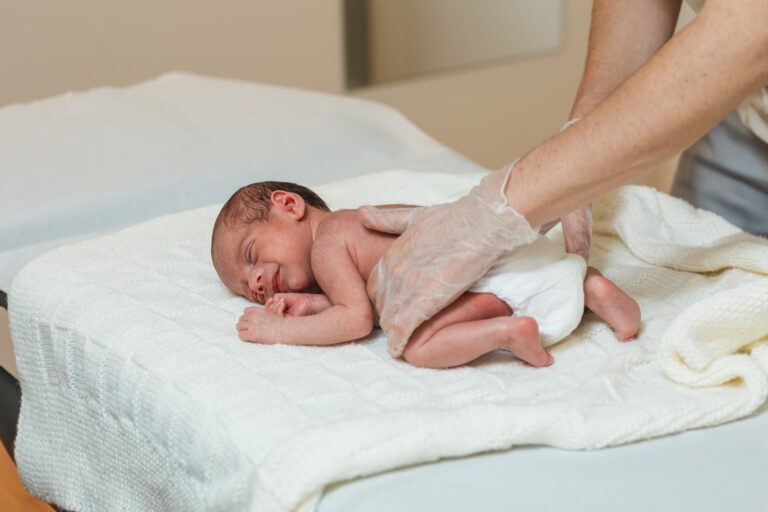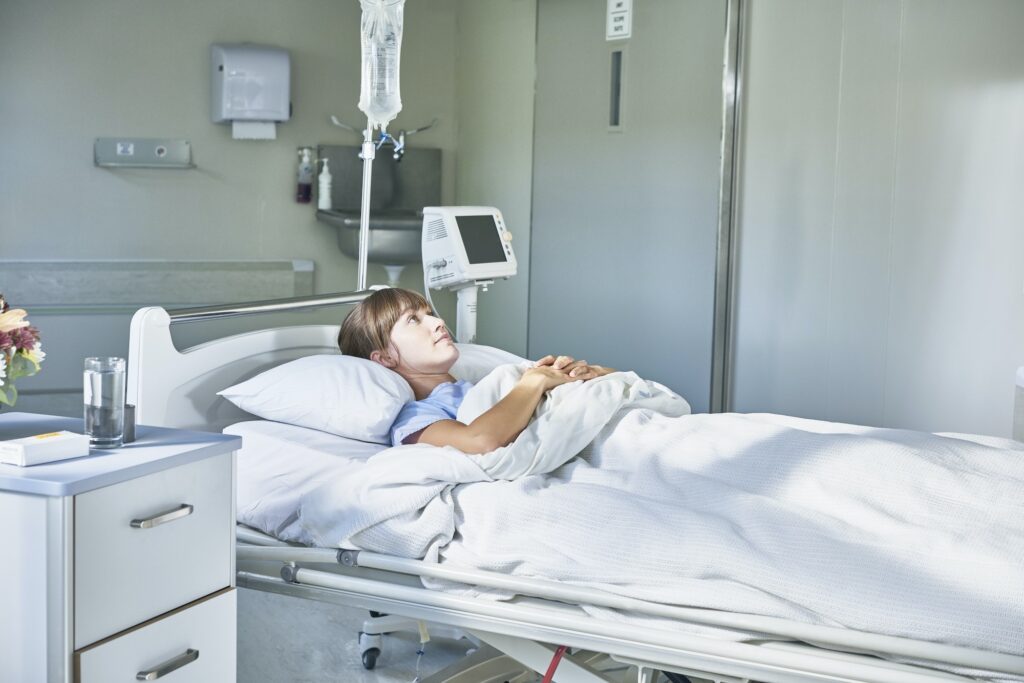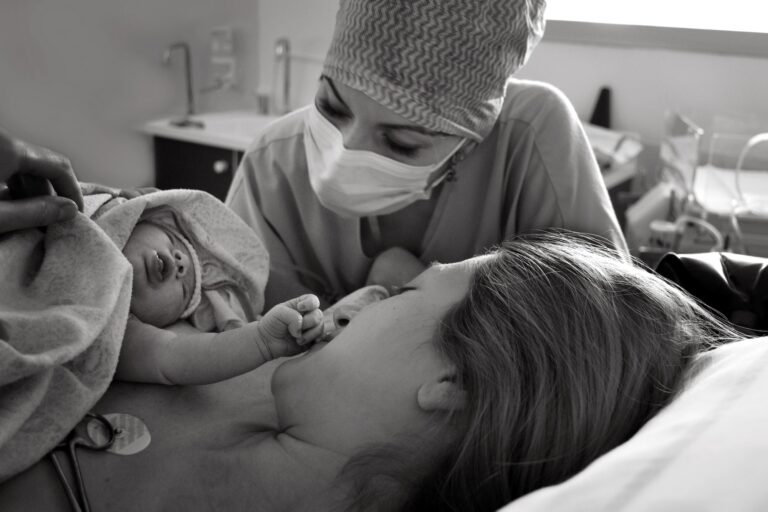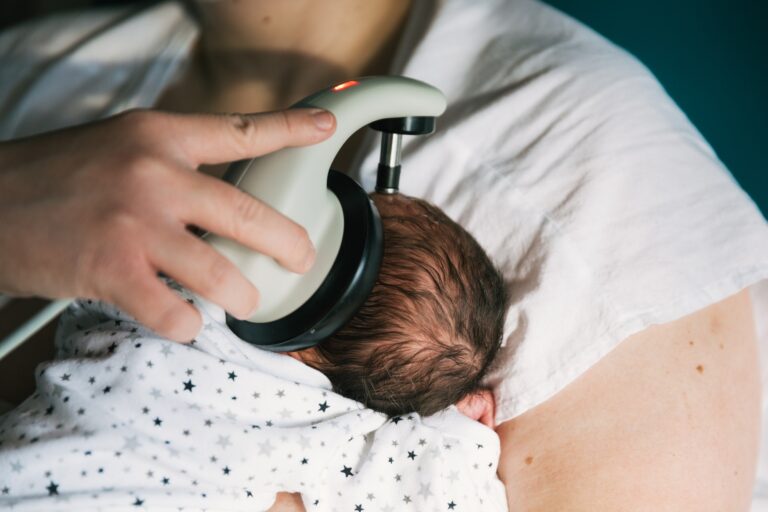
Understanding Patent Ductus Arteriosus: Causes, Symptoms, and Treatment Options
In the intricate realm of cardiovascular health, certain conditions demand our attention, and Patent Ductus Arteriosus (PDA) stands

Postpartum psychosis is a rare but severe mental health condition that affects some women after childbirth. It is a distinct and acute form of postnatal mood disorder that typically occurs within the first few weeks after delivery. Characterized by a rapid onset of symptoms, postpartum psychosis is a psychiatric emergency that requires immediate medical attention.
This condition is often characterized by a range of symptoms, including hallucinations, delusions, confusion, severe mood swings, and disorganized behavior. Women experiencing postpartum psychosis may exhibit erratic and unpredictable behavior, posing a risk to both themselves and their infants. It is essential to distinguish postpartum psychosis from other more common postpartum mood disorders, such as postpartum depression, as the treatment approaches differ significantly.
Discussing the topic of postpartum psychosis is of utmost importance due to its potentially devastating consequences for the affected women, their families, and their newborns. While it is a relatively rare condition, the severity and rapid progression of symptoms can lead to life-threatening situations, including suicide or infanticide. By raising awareness and understanding about postpartum psychosis, we can promote early detection, intervention, and support for women experiencing this challenging condition.
In this blog post, we will provide an overview of postpartum psychosis, its causes, and risk factors. We will delve into the symptoms and diagnostic criteria to help readers identify the signs of this condition. Additionally, we will discuss the potential consequences of untreated postpartum psychosis and the impact it can have on the mother-infant bond and family dynamics. It is crucial to explore the available treatment options, including medication, therapy, and hospitalization, and address the challenges and stigma surrounding seeking help for postpartum psychosis.

Postpartum psychosis is a rare but serious mental health condition that can occur in women shortly after giving birth. It is characterized by a rapid onset of severe psychiatric symptoms, including hallucinations, delusions, confusion, and mood swings. The causes of postpartum psychosis are complex and multifactorial, involving a combination of biological, psychological, and social factors. Several key factors contribute to the development of postpartum psychosis, including hormonal changes in the body after giving birth, personal or family history of mental illness, traumatic childbirth experience, and lack of social support.
Hormonal fluctuations play a significant role in postpartum psychosis. During pregnancy, hormone levels, such as estrogen and progesterone, increase significantly. After childbirth, there is a rapid drop in these hormones, which can impact neurotransmitter function in the brain. The sudden hormonal changes may contribute to the onset of postpartum psychosis in susceptible individuals.
A personal or family history of mental illness, especially mood disorders like bipolar disorder or previous episodes of postpartum psychosis, increases the risk of developing postpartum psychosis. Genetic factors may make some women more vulnerable to hormonal changes and the stresses associated with childbirth, leading to the manifestation of this condition.
A traumatic childbirth experience, such as a complicated delivery, emergency cesarean section, or severe physical pain, can act as a trigger for postpartum psychosis. The distressing events during childbirth may lead to intense emotional reactions, overwhelming stress, and a sense of loss of control, which can contribute to the development of psychosis.

Social support is crucial during the postpartum period, and a lack of it can have a negative impact on a woman’s mental health. Isolation, limited emotional support, and inadequate practical assistance can increase the risk of developing postpartum psychosis. The demands of caring for a newborn coupled with feelings of loneliness and being overwhelmed, can exacerbate the psychological strain on a new mother, potentially leading to the onset of psychosis.
It’s important to note that these factors alone may not directly cause postpartum psychosis, but rather increase the susceptibility of women who are already predisposed to the condition. Postpartum psychosis is a psychiatric emergency that requires immediate medical attention and treatment. If you or someone you know is experiencing symptoms of postpartum psychosis, it is crucial to seek help from healthcare professionals as soon as possible. Early intervention can greatly improve the outcomes and ensure the safety and well-being of both the mother and the child.
Postpartum psychosis is a serious mental health condition that can occur after childbirth. The symptoms of postpartum psychosis include:
Women may experience hallucinations, perceiving things that are not actually there, such as hearing voices or seeing objects or people that do not exist. Delusions, which are false beliefs, can also occur. These beliefs are often irrational and firmly held, even when contradictory evidence is presented.
Women with postpartum psychosis may have difficulty thinking clearly, making decisions, or remembering things accurately. They may feel mentally foggy or have trouble focusing on tasks.
A significant symptom of postpartum psychosis is the presence of intense and rapid mood changes. Women may go from extreme happiness to profound sadness, irritability, anxiety, or anger within a short period. These mood swings can be unsettling and disruptive to daily life.
Women experiencing postpartum psychosis may have distressing thoughts or beliefs about harming themselves or their babies. These thoughts can be intrusive and frightening, and it is crucial to seek immediate help and support in such cases to ensure the safety of both the mother and the child.
Sleep problems are common in postpartum psychosis. Women may struggle with falling asleep, staying asleep, or experiencing restful sleep. Sleep deprivation can exacerbate other symptoms and further impair cognitive and emotional functioning.
It is important to remember that postpartum psychosis is a severe and potentially life-threatening condition. If you or someone you know is experiencing these symptoms, it is crucial to seek professional help immediately. Prompt diagnosis and treatment are vital for the well-being and safety of both the mother and the baby.
The treatment of postpartum psychosis typically involves a comprehensive approach to ensure the well-being and recovery of the affected individual. The following components are commonly utilized:

By implementing a combination of hospitalization, medication, therapy, support groups, and involving healthcare professionals and family members, individuals with postpartum psychosis can receive comprehensive care that addresses their symptoms, promotes recovery, and reduces the risk of relapse. It is essential to tailor the treatment plan to the individual’s specific needs and provide ongoing support throughout the healing process.
Postpartum psychosis presents several challenges that can significantly impact individuals and their families. These challenges include:

Addressing the challenges associated with postpartum psychosis requires a multi-faceted approach. Public awareness campaigns to combat stigma, improved education for healthcare professionals and families, enhanced accessibility to mental health services, and providing support to affected individuals and their families are essential steps toward early intervention, treatment, and recovery.
In conclusion, postpartum psychosis is a serious and potentially life-threatening illness that can have a major impact on the well-being of new mothers. The latest research shows that there are certain risks associated with this disorder, including depression, anxiety, and even suicide. It’s important to examine any unusual symptoms and seek appropriate care as soon as possible. Lack of sleep, pain, and the burden of caring for a new baby can all contribute to the vulnerability of new mothers, but with the right support and thorough care, there is hope for a positive outcome. The majority of women with postpartum psychosis can recover and go on to lead healthy, happy lives. However, this requires increased awareness and education about the illness, as well as an emphasis on prioritizing mental health during and after pregnancy. Let’s work together to ensure that all new mothers have access to safe and effective care, so that they can start their journey into motherhood with confidence and peace of mind.
1. What is postpartum psychosis? Postpartum psychosis is a rare and severe mental health condition that affects some women after childbirth. It is characterized by the onset of psychotic symptoms, such as hallucinations, delusions, extreme mood swings, and disorganized thinking, within the first few weeks after giving birth.
2. What are the risk factors for developing postpartum psychosis? While the exact cause of postpartum psychosis is unknown, several risk factors have been identified. These include a personal or family history of bipolar disorder or postpartum psychosis, previous episodes of postpartum psychosis, a recent severe life stressor, lack of social support, and a first-time pregnancy.
3. How common is postpartum psychosis? Postpartum psychosis is considered rare, affecting approximately 1 to 2 out of every 1,000 women who give birth. However, it is important to note that the condition can be severe and requires immediate medical attention.
4. What are the symptoms of postpartum psychosis? The symptoms of postpartum psychosis can vary but often include confusion, rapid mood swings, irritability, restlessness, paranoia, hallucinations (seeing or hearing things that are not real), delusions (holding false beliefs), and thoughts of harming oneself or the baby. It is crucial to seek help if experiencing any of these symptoms.
5. How is postpartum psychosis different from postpartum depression? While postpartum psychosis and postpartum depression are both related to childbirth, they are distinct conditions. Postpartum depression is a more common and less severe mood disorder, characterized by feelings of sadness, fatigue, and a lack of interest in the baby or activities. In contrast, postpartum psychosis involves a break from reality and often requires urgent medical intervention.
6. Can postpartum psychosis be treated? Yes, postpartum psychosis is a treatable condition. Prompt medical intervention is essential for the safety of both the mother and the baby. Treatment typically involves a combination of medication, such as antipsychotics and mood stabilizers, and psychotherapy. In severe cases, hospitalization may be necessary to ensure the mother’s safety.
7. What are the potential complications of postpartum psychosis? If left untreated, postpartum psychosis can lead to serious consequences. The mother may be at risk of self-harm or harming the baby, and the infant’s safety is a significant concern. However, with proper treatment and support, recovery is possible, and most women can go on to have a healthy and fulfilling life with their child.
8. How can postpartum psychosis be prevented? Prevention strategies for postpartum psychosis are still being researched. However, if you have a history of postpartum psychosis or other risk factors, it is important to inform your healthcare provider during pregnancy so that appropriate monitoring and support can be provided. A strong support system, including family, friends, and healthcare professionals, can also play a vital role in preventing and managing postpartum psychosis.
9. Can postpartum psychosis recur in subsequent pregnancies? Yes, women who have experienced postpartum psychosis in a previous pregnancy have an increased risk of recurrence in subsequent pregnancies. However, with proper monitoring, early intervention, and treatment, the risk can be minimized, and the condition can be effectively managed.
10. Where can I find help and support for postpartum psychosis? If you or someone you know is experiencing symptoms of postpartum psychosis, it is crucial to seek help immediately. Contact your healthcare provider, a mental health professional, or emergency services in your area. Several organizations and support groups

In the intricate realm of cardiovascular health, certain conditions demand our attention, and Patent Ductus Arteriosus (PDA) stands

Guidance for Healthy Baby’s Growth Charting a birth plan is like GPS for natural childbirth—a guide for a
Pregnancy, often considered a period of joy and anticipation, can sometimes be fraught with complications. One such condition

Each parent envisions a healthy future for their child, including auditory well-being. Early identification of hearing impairments through